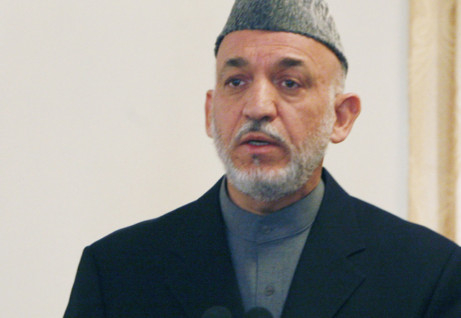
What went wrong with Prophet Mohammad’s (PBUH) egalitarian message that Islam today is considered as the most oppressive and misogynist religion?
Afghanistan is perceived by some as an example of an oppressive regime, where women are denied some of their basic rights. In 2009, the Afghan President, Hamid Karzai, introduced a law banning violence against women. The law was passed by presidential decree. However, it did not receive parliamentary approval. The decree criminalised 23 acts of violence, including forced marriages and child marriages and other forms of maltreatment of women. Although the Elimination of Violence Against Women law (EVAW) is implemented disproportionately, there have been many prosecutions.
Recently, some Afghan politicians wanted the law to receive parliamentary approval, rendering it irreversible and applied consistently. However, the debate was suspended amid some of the conservative parliamentarians decrying the law as not being compliant with the teachings of Islam and accusing the president of flouting the Sharia. The decree has not been sabotaged completely, but it has gone into limbo and sent to a joint commission for additional consideration.
Not long after the US-led invasion of Afghanistan, US president George W. Bush and his wife Laura had said that the fight against terrorism was also a fight for women’s rights. The question though is, more than a decade later, how much has actually been achieved when the Afghan government can sabotage a presidential decree banning violence against women, forced marriages and other forms of abuses? Since 2001, the country has received around £60 billion (Dh337.32 billion) in aid. There have been improvements in education and representation of women in governance. There are about two million girls in schools and about 27 per cent of parliamentarians are women — more than what Britain has. Despite, this, a 2012 survey of women across Afghanistan by the charity ActionAid found that nine out of ten in the country feared further deterioration with the departure of the international community.
It should be remembered that when Prophet Mohammad (PBUH) presented Arabia with Islam, Arab culture was engulfed in misogyny and sexism. Sexual inequality is not a legacy of Arab society though, because in the seventh century, no society was egalitarian.
Throughout history, almost all societies were entrenched in patriarchal practices where women struggled for equality and basic rights and were not even considered as complete human beings. The western world was premised on Essentialist ideas, inferring that the biological differences between men and women meant that women by nature were inferior to men. Thomas Aquinas said: “Woman is an imperfect man.”
Fundamental rights
Prophet Mohammad (PBUH) emancipated women, enabling them to attend mosques, participate in discourses with him and contribute to political and public affairs. His wife Aisha transmitted around 2,210 narrations on matters pertaining to Islamic way of life. A Muslim woman has the right to be independent; she is not required to take the name of her husband because she has the right to maintain her identity; she has a right to education; a right to choose who she wants to marry. Sadly, the violation of some of these fundamental rights are common in Afghanistan, especially in the rural areas.
Afghanistan is not the only place where Muslim women struggle for gender equality. This is compounded by a profound ignorance of Islam and some Muslims interpreting the Quran to justify sexual oppression, inequality and patriarchy.
Prophet Mohammad’s (PBUH) message was unequivocal: Men and women are equal, but different. It is myopic to assume that being treated differently is being treated unequally. The Quran asserts that men and women are equal before God; the only distinguishing criterion is piety. “And whosoever does deeds of righteousness, whether male or female, and is a believer, they will enter Heaven and not the least injustice will be done to them.”
For many Muslims, equality before God would take precedence over earthly matters that allude to differences between the two sexes.
It is important to separate the wheat from the chaff, to understand Islam through its original sources rather than cultural practices and misogynist interpretations.
Human rights activists claim that the international community needs to do more to ensure that women in Afghanistan are not denied their basic rights. They believe that stringent conditions must be imposed on the Afghan government when giving aid by demanding gender equality. This may be premature. I think it is the cultural attitudes that need to change. There needs to be meaningful discourses on the rights of Muslim women and these changes must be led from within Afghanistan.
Muslim women do need liberating — not from Islam — from their indigenous cultural practices, often conflated with Islam. Muslims must not be reticent; they need to bear the responsibility for the liberation of Muslim women and ensure that they are not deprived of the rights granted to them by Prophet Mohammad (PBUH) more than 1,400 years ago.
Sajda Khan is a British writer and a doctorate candidate, researching the relevance of Islam in contemporary society. You can follow her on www.twitter.com @SajdaKhanUK










